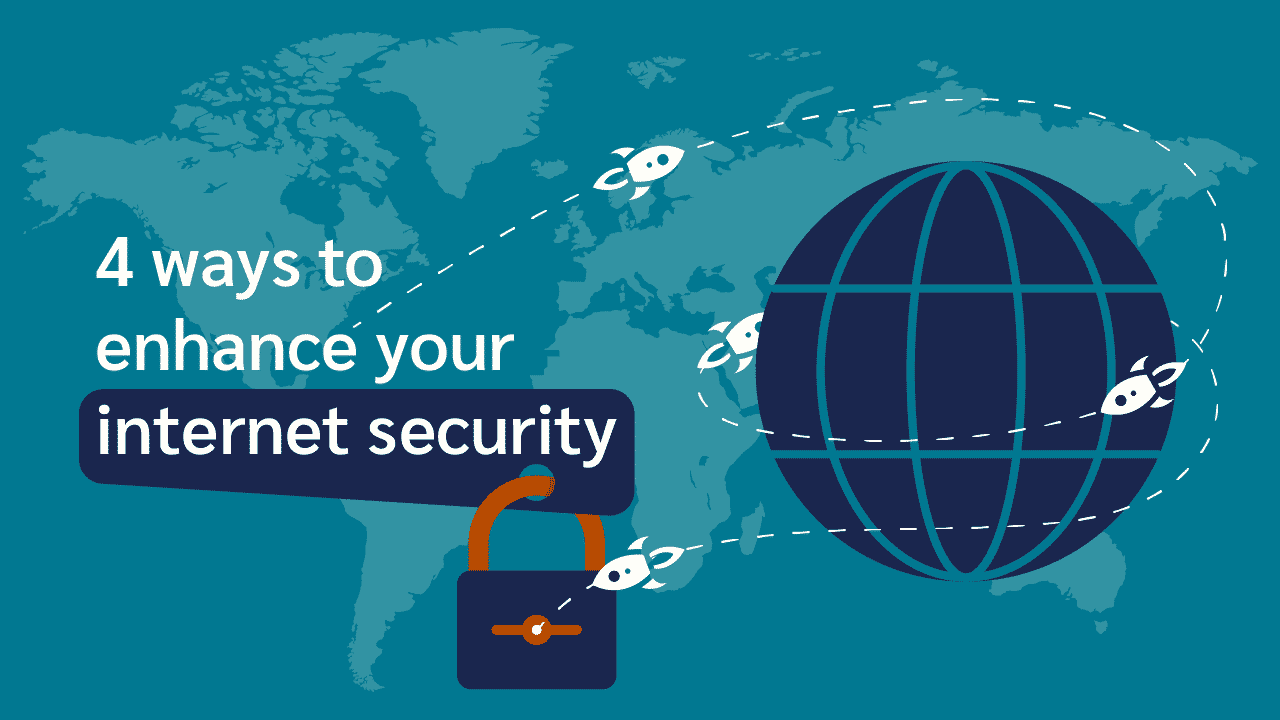4 Ways To Enhance Your Internet Security
Surfing on the Internet brings about many dangers. Cyber criminality and hacking might seem a little distanced from our online activity if we have never experienced them occur to us. Yet, it only takes one bad experience with such situations to understand how serious it actually is. Annually, millions fall victim to serious online viruses, malware, and vicious attacks.
Following, it is important to stay protected. But how do you ensure your Internet security? Some ways are obvious, while others are rarely discussed. In this article, we will explore the 4 best ways to enhance your Internet security, which includes the use of VPNs, antivirus software, password protection, and common sense.
1. A VPN Allows Secure and Encrypted Traffic Online
VPN services have been among the hottest alternatives in the last decade for protecting online activities. The reasoning behind this is that VPN services provide a secure and encrypted way of surfing the web. In essence, a VPN basically allows you to surf the Internet without anyone knowing who you are – because your IP address is hidden, and a new is assigned.
Along this process of routing your traffic, a VPN service also provides encryption. This is not your everyday encryption. In fact, for most services, it is on the level of the U.S. army. That means your communication, payment information, and more is secured on the same level as military grade documents. That is why a VPN is the best resource to keep you safe online.
2. Acquire Antivirus Software For Full Protection
To further secure your online activity, utilizing antivirus software is a great step towards a bulletproof online presence. Antivirus programs are cheap, at least compared to the cost of being a victim to cybercrimes, and they are easy to use. In fact, they just simply run in the background and let you know whenever dangers are appearing.
For instance, if you visit a site, read an email, or in other ways interact with content that contains virus or malware for instance, the antivirus program will alert you. That means you do not need to experience the downfalls of the Internet in any way – your antivirus program will keep you secure and let you know exactly what is going on at all times.
3. Protect Your Passwords
While most websites will allow you to create rather simplistic passwords, this is rarely a good idea. Even when a site allows you to create a password with a few characters, and without any special requirements besides a capital letter and a number for instance, you should invest time in making the password a little more complex.
That makes it harder to access your accounts for third parties with bad intentions. A great tip is to make complex and long passwords. You should also have a different password for each and every account you utilize online. Since these might be tough to remember, you can of course use a password bank program to store all of your passwords.
4. Use Common Sense When Surfing Online
Lastly, but definitely most importantly, you ought to use common sense while surfing online. The rationale is that the abovementioned techniques are simply worthless if you do not exercise common sense. For instance, if a webshop does not have the SSL encryption icon, a lock that appears in the URL-address line, then shopping there is probably not a good idea.
Opening emails that are too good to be true, discussing your passwords with others without caution, and visiting sites you know to be dangerous, are all good examples of bad exercise of common sense. If you want to stay secure online, this point should trump all of the aforementioned ideas.
Invest In Online Security And Save Your Worries
While investing in Internet security certainly has a financial upside to it, the greatest argument is possibly that you can leave all worries behind. When surfing online, we love to be entertained. While you still need to exercise some sort of common sense, your investments in Internet security allows you to kick back and enjoy the online experience without worrying.
